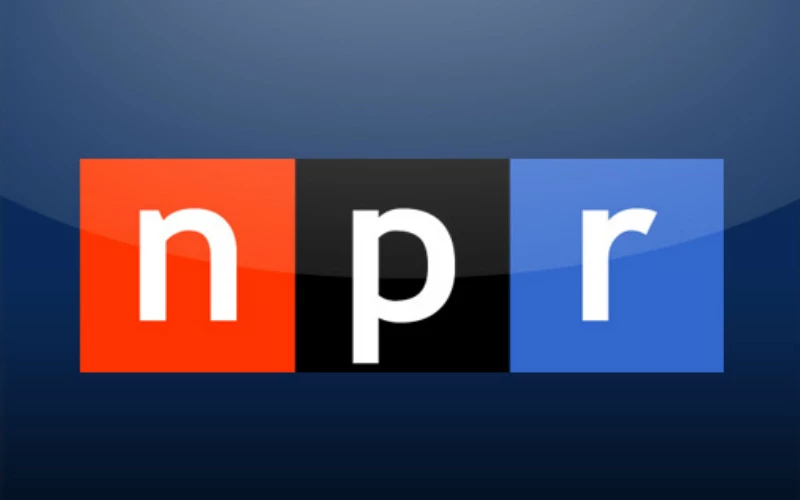National Public Radio may have been a good idea when it was created for the public---and to be funded by the public---so it would be fair and balanced---so it would reflect all of America's views.
All the "public."
Well, it doesn't. But we are still paying for it.
The "public" needs to take a closer look at "public radio."
Be informed, not misled.
Tim Graham, the head of News Busters, says, "NPR has a "public editor" to monitor listener complaints and concerns, but as we all know, the majority of their listeners are going to complain they're not "progressive" enough. In 2021, Public Editor Kelly McBride appeared on Brian Stelter's CNN podcast to praise NPR's decision to allow their journalists to go to (leftist) public protests so they can "bring their full humanity to work with them."
He continues:
When Stelter asked about NPR's critics, McBride dismissed any conservative complaints about a leftist tilt because they are not "genuinely interested in improving NPR." McBride claimed her job was to coach NPR "to achieve its own internally stated goals. It doesn't help to be magnifying disingenuous criticism." To balance NPR is to harm NPR?
NPR senior editor Uri Berliner wrote a bombshell expose for The Free Press, chronicling NPR's blatant bias on subjects from Russian collusion conspiracy theories to the Hunter Biden laptop. NPR didn't report negatively on Donald Trump; they sought to "damage or topple Trump's presidency." Is McBride going to find that this internally stated criticism isn't worth considering?
NPR media reporter David Folkenflik countered with an official word salad from NPR chief news executive Edith Chapin rejecting Berliner's critique: "We're proud to stand behind the exceptional work that our desks and shows do to cover a wide range of challenging stories," she wrote. "We believe that inclusion -- among our staff, with our sourcing, and in our overall coverage -- is critical to telling the nuanced stories of this country and our world."
Graham concludes, "On a daily basis, taxpayer-funded NPR is nothing short of a massive gift to the Left, pumping out progressive propaganda to over 1,000 stations. Because it has "public" in its branding, too many Americans still think it's a service to everyone -- and not just to the Democrats who ensure the millions keep flowing."
If you doubt the depths to which our "community" voice has sunk, take a look at who "public radio" has chosen as the new CEO.
New Leadership at NPR.
NPR’s new CEO, Katherine Maher, shrugged off widespread looting and property damage during the 2020 riots, saying it was "hard to be mad" about the destruction.
It's "hard to be mad" about riots that caused up to $2 billion in damage?
Is this beginning to sound like Seattle Mayor Jenny Durkan describing CHOP as a "Summer of Love?"
"I mean, sure, looting is counterproductive. But it’s hard to be mad about protests not prioritizing the private property of a system of oppression founded on treating people’s ancestors as private property," Maher wrote in a May 2020 social media post. "White silence is complicity. If you are white, today is the day to start a conversation in your community," she wrote one day later.
White silence is complicity. If you are white, today is the day to start a conversation in your community.
— Katherine Maher (@krmaher) June 2, 2020
Has NPR has always been leftist?
Uri says, "For decades, since its founding in 1970, a wide swath of America tuned in to NPR for reliable journalism and gorgeous audio pieces with birds singing in the Amazon. Millions came to us for conversations that exposed us to voices around the country and the world radically different from our own—engaging precisely because they were unguarded and unpredictable. No image generated more pride within NPR than the farmer listening to Morning Edition from his or her tractor at sunrise."
Back in 2011, although NPR’s audience tilted a bit to the left, it still bore a resemblance to America at large. Twenty-six percent of listeners described themselves as conservative, 23 percent as middle of the road, and 37 percent as liberal.
By 2023, the picture was completely different: only 11 percent described themselves as very or somewhat conservative, 21 percent as middle of the road, and 67 percent of listeners said they were very or somewhat liberal. We weren’t just losing conservatives; we were also losing moderates and traditional liberals.
He concludes, "An open-minded spirit no longer exists within NPR, and now, predictably, we don’t have an audience that reflects America.
"That wouldn’t be a problem for an openly polemical news outlet serving a niche audience. But for NPR, which purports to consider all things, it’s devastating both for its journalism and its business model."
Uri continues to argue that the real reason NPR has become irrelevant to many is that it has failed to include news related to all listeners.
Like conservative views? Oh, no. More inclusion of LGBTQIA+ and more inclusion of racial oppression content. He calls it "viewpoint diversity."
Why does taxpayer money fund a leftist radio network that does not reflect the views of all Americans?
NPR’s funding has been a point of controversy since its founding in 1970. NPR is officially a private company, but up until 1983, it received over half of its funding from the federal government through the Corporation for Public Broadcasting (CPB). In that year, NPR nearly went bankrupt after years of financial mismanagement, and in the subsequent restructuring process, the organization was put under tighter controls by the CPB in exchange for loans.
NPR now claims to receive only 1% of its funding from taxpayers, but that is very deceiving.
NPR generates increasing amounts of its revenue from charitable donations and licensing fees. However, a significant portion of the fees come from private local stations that receive funding from CPB and state and local governments, which is taxpayer money.
Takeaway
In 2003, NPR received over $200 million from the estate of Joan Kroc, the widow of Mcdonald's mass franchiser Ray Kroc.
In 2010, NPR received $1.2 million from George Soros’ Open Society Foundations. The donation attracted controversy because of George Soros’s reputation as a far-left donor, and because it was announced on the same day, NPR fired Juan Williams for comments he made on Fox News. Critics accused NPR of demonstrating left-wing bias, despite claiming to be a broadcasting organization for public benefit.
In my view, NPR is a far-Left radio network, despite claiming to be a broadcasting organization for public benefit.
Be Informed. Be Discerning. Be Vigilant. Be Bold. Be Prayerful Pray for our country.


